Over the past week, international media reports on the Hong Kong protests have been saturated with pictures of destroyed shopfronts. Some have denounced protesters’ increasingly “ugly” tactics, mimicking the Hong Kong Police Force’s condemnation of “rioters’ wanton destruction” of the city.
Just a few weeks ago, Hongkongers were lauded as underdogs bravely facing down an authoritarian regime. Why the shift in tone?
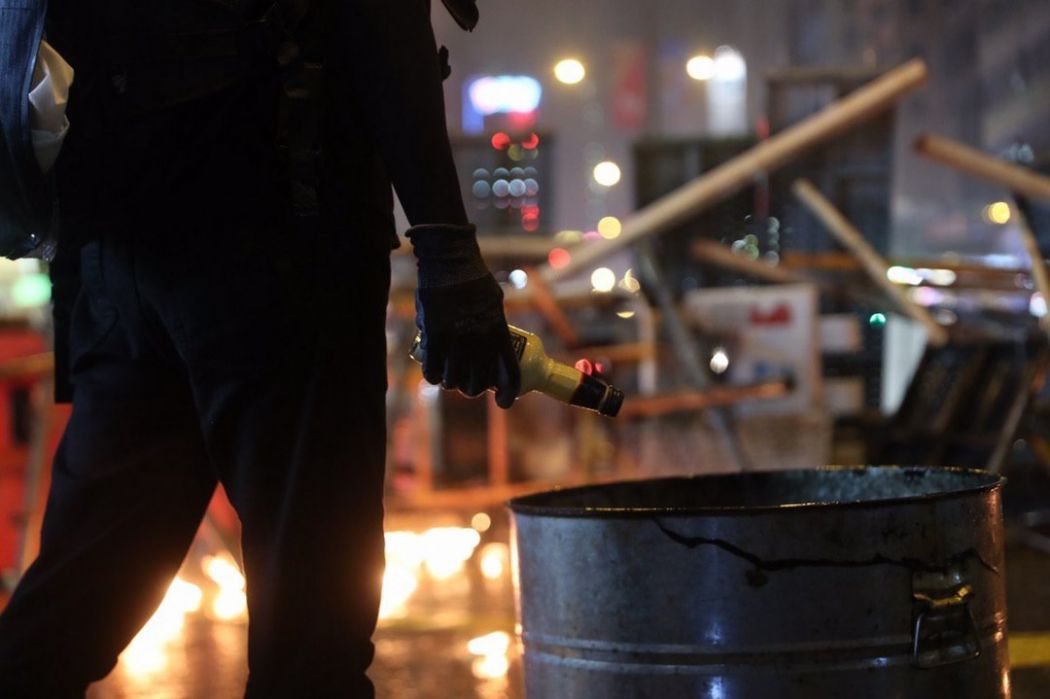
I think there are two main reasons. First, international media outlets have always been enamoured with Hongkongers as the archetypal peaceful protesters. During the 2014 pro-democracy Umbrella Movement, multiple op-eds focused on participants’ “politeness” and “orderliness”, marvelling at how they would always clean up after themselves after marches.
Early reporting of the ongoing protest movement also marvelled at protesters setting up their own recycling bins and wielding cardboard shields against riot police.
The effect of this idealisation is that once people engage in forms of militant direct action, such as targeted vandalism, they no longer fit into stereotypical images of how a Hong Kong protester is supposed to act. Western audiences who previously lauded us for our peaceful tactics now condemn us, because they are more invested in their fixed projections of who we are, than understanding why we act the way we do.
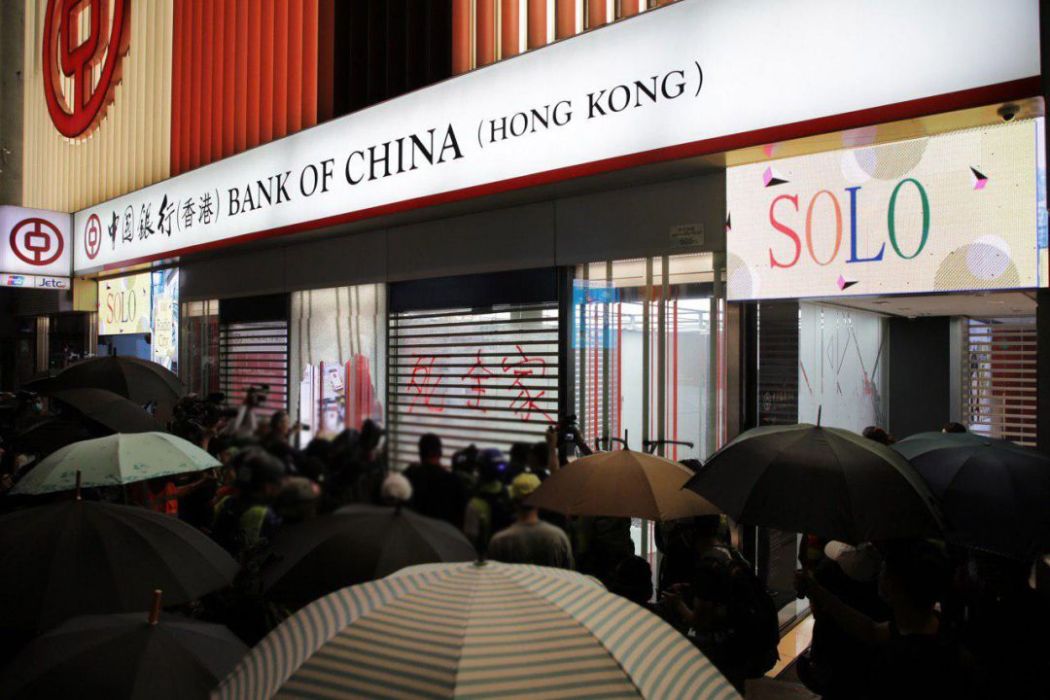
At the root of this is also racism: the insistence on seeing Hongkongers as passive and docile objects, rather than active political subjects.
Second, once Hongkongers’ methods of protest become more radical, they begin to resemble the kinds of protest that Western governments suppress at home. The chant “no rioters, only tyranny” does not resonate as much with these audiences, because it forces them to take seriously the ways that the same language of “rioting” is used to clamp down on the grievances and protests of marginalised people of colour in their own communities.
One of the principles of this anti-extradition bill movement, that has now morphed into one against police brutality and for democracy, is: “No division; no condemnation; no severing ties.” The emphasis on solidarity this time around is a reaction to the Umbrella Movement and its aftermath – when disputes between factions led to widespread disillusionment and apathy towards Hong Kong politics.
What is important in this statement is that it refers not to ideas, but to people; that is, no one is disposable in our movement, and we have to talk through our disagreements, no matter how difficult it is.
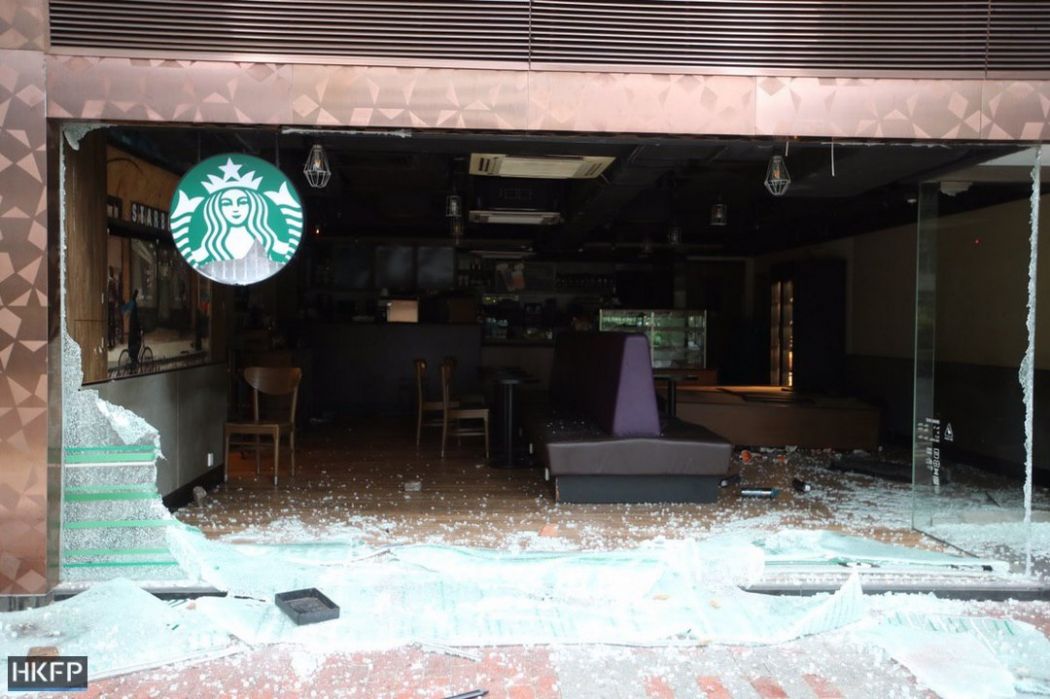
Returning to the topic of vandalism, a big debate on “renovations” and “decorations” has been raging on Telegram groups and LIHKG threads. Some frontline protesters argue that targeting specific shops and chains is a deliberate, political act. For example, protesters have smashed up Starbucks storefronts, because the chain’s Hong Kong franchise is owned by Maxim’s.
In September, the daughter of the Maxim’s founder claimed at the United Nations that children are “exploited” to participate in the movement. Protesters have also vandalised MTR stations because of the perceived collusion between the MTR and the government, particularly after riot police besieged Prince Edward Station on August 31 and MTR refused to release CCTV footage of the attacks.
Others have called on frontline protesters to exercise caution, if only because vandalism may cause international opinion of the Hong Kong protests to sour. Hongkongers are keenly aware that their continued survival requires building alliances with powers that can support their fight for human rights and democracy. But nowhere is there condemnation of vandalism; only continued attempts to understand and contextualise.
Underpinning the debate is the general principle that has guided the movement – that protesters will not sever ties with one another on the basis of particular people’s actions and choices. We afford each other generosity in understanding the grief and anger that leads to particular acts, because we share a common experience of living in a de facto state of emergency.
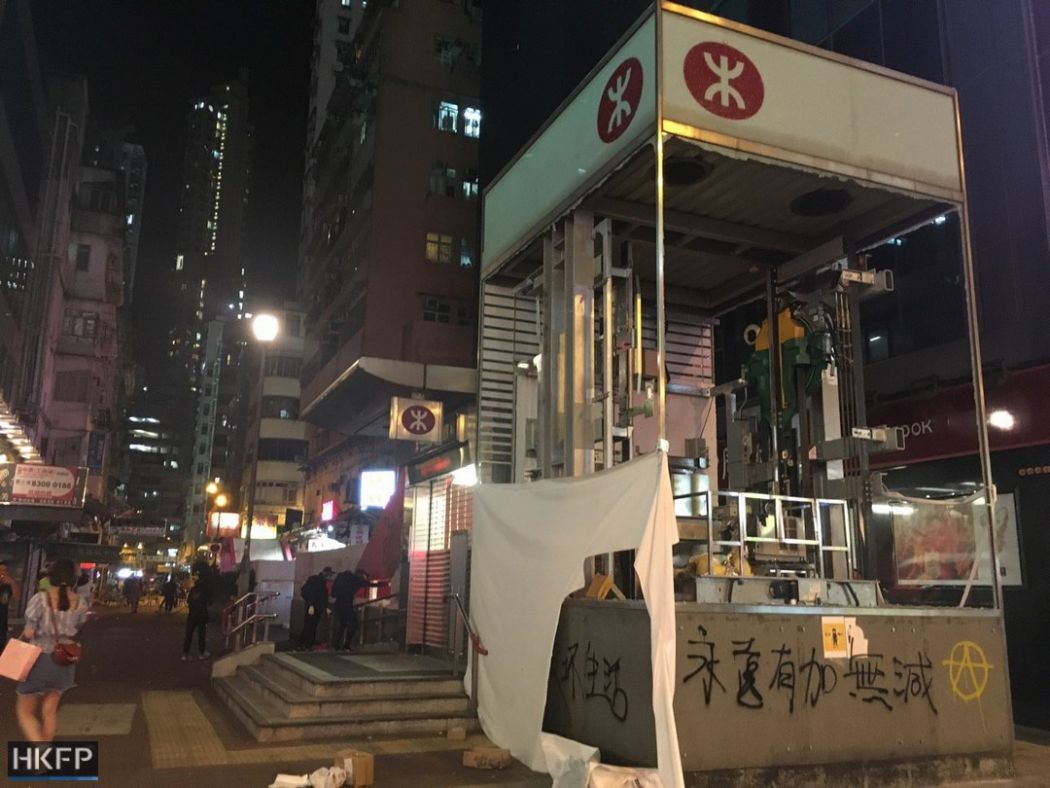
We also understand that in the spirit of “be water”, our protest tactics have to be flexible and target all of the structures that oppress us, whether that is the government or the capital interests that prop up the government.
This is not to say that we cannot condemn the nativist tendencies of particular violent acts. We must reject all attacks on individuals that are based on the simple fact that they are from the mainland. We must remember that the enemy is not mainland Chinese people, but the Chinese state and the Chinese and Hong Kong elite who benefit from its repressive rule.
Attacking individuals is not only counterproductive; it is also fundamentally contrary to the values we are fighting for: a fair and just system where we all have equal rights to political participation.
With all of this internal reflection on the part of Hongkongers in mind, if western audiences’ sympathy continues to be contingent on Hongkongers’ fulfillment of their fantasies of peaceful protest, this should give us some pause.
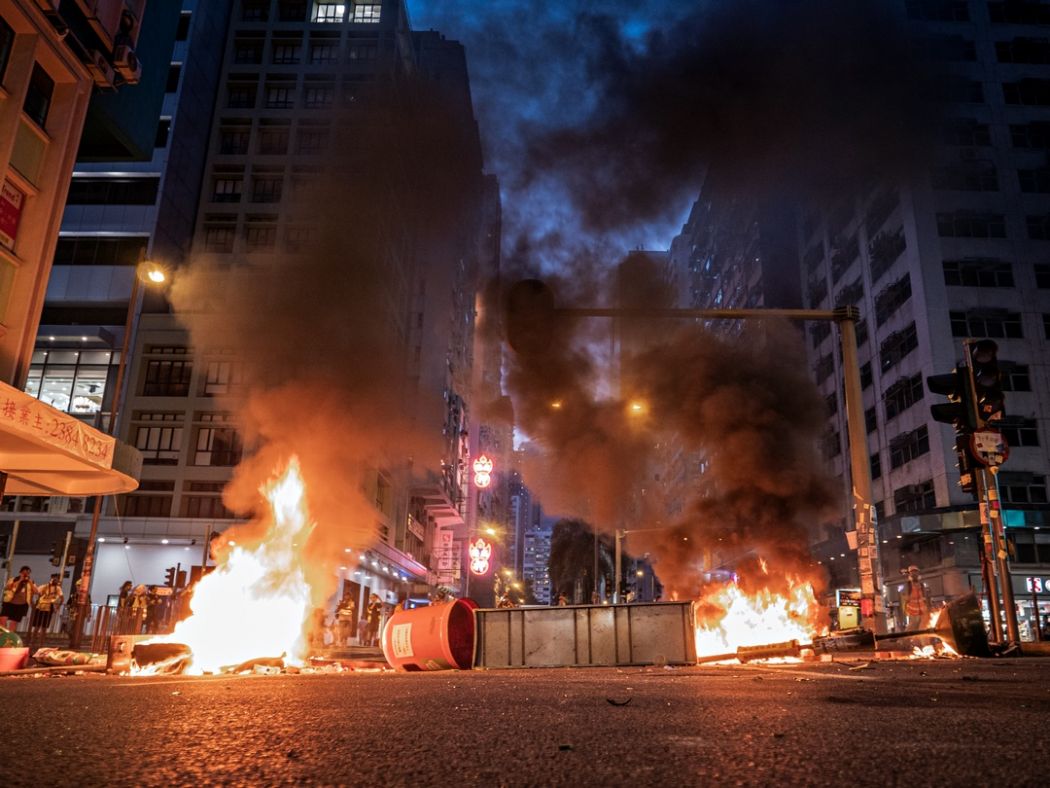
It may also be more fruitful to find allies who understand that violence is simply a means employed in a particular context to achieve particular aims – that rather than condemning the violence of particular individuals and acts, we should turn our attention to the violence of the state and the police that creates the conditions for such acts to occur.
And perhaps instead of trying to justify or even simply explain our actions to people who are more invested in their ideas of us than in understanding the reasons we have resorted to these tactics, we should dare to demand greater empathy and real solidarity in the face of a far greater tyranny.
